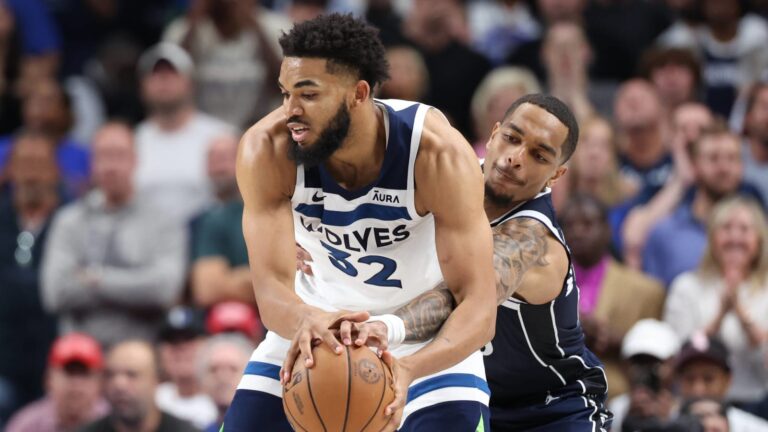Karl-Anthony Towns delivered a commendable performance throughout the recent season, but the Minnesota Timberwolves would ultimately benefit more by trading him.
Their recent exit from the Western Conference Finals at the hands of the lower-seeded Dallas Mavericks was a significant setback, especially when considering their daunting $273 million payroll. Anything less than a trip to the NBA Finals next season would be deemed a failure for this team.
For the Timberwolves to advance, substantial improvements are essential. The margin for error is minimal in the fiercely competitive Western Conference, and Towns (who averaged 21.8 points and 8.3 rebounds per game in the 2023-24 season) has often been a liability, particularly in the playoffs. Over 32 career playoff games, Towns has averaged just 18.8 points per game on 46.8% shooting, a noticeable drop from his regular season career averages of 22.9 points on 52.4% shooting.
Beyond his diminished offensive performance in the postseason, Towns’ tendency to foul frequently places his team in difficult situations. In this past spring’s playoff run, he accrued four or more fouls in nine out of 16 games.
Such issues are intolerable for a player set to earn $49.3 million next season. Additionally, with Towns’ salary, the Timberwolves are over the second tax apron, severely limiting their options for roster improvements.
The Timberwolves might also contemplate trading Rudy Gobert, who posted 14 points and 12.9 rebounds per game in the 2023-24 season and is due $43.8 million next season.
However, Gobert’s defensive presence and shot-altering abilities are critical to Minnesota’s success, making him more valuable than Towns’ inconsistent offense.
If the Timberwolves decide to part ways with Towns, they already have a promising internal candidate in Naz Reid (13.5 points per game). Reid, the 2024 NBA Sixth Man of the Year, has shown offensive prowess and defensive competence, particularly evident in his performance against Nikola Jokic in the Western Conference semifinals.
Despite a seemingly deep roster, the Timberwolves struggled offensively when Anthony Edwards was off his game. They lacked a reliable secondary scorer, a role Towns has failed to consistently fill. Therefore, acquiring a dependable secondary scorer is imperative for Minnesota’s success.
Two potential targets for the Timberwolves this offseason include Jimmy Butler and DeMar DeRozan. Butler, who previously averaged 20.8 points per game, had a turbulent exit from Minnesota due to conflicts with Towns and Andrew Wiggins. With Wiggins and potentially Towns gone, Butler could be a perfect fit.
Miami Heat president Pat Riley’s uncertainty about Butler’s future presents an opportunity for Minnesota. Butler has proven himself as an elite playoff performer, averaging 27.1 points per game in his last two playoff runs and leading the Heat to two NBA Finals appearances. He is under contract for the next two seasons, with a player option for 2025-26.
If acquiring Butler proves unsuccessful, a sign-and-trade deal for DeRozan (who averaged 24 points per game) would be a viable alternative. Although DeRozan has expressed his fondness for the Chicago Bulls, his desire to “just have the opportunity to win” suggests he might be open to a move.
The Bulls have failed to make the playoffs in the last two seasons, and DeRozan could provide the Timberwolves with the much-needed perimeter scoring and clutch performance, ranking second only to Stephen Curry in clutch points last season.
In conclusion, for the Timberwolves to break through in the highly competitive Western Conference, trading Karl-Anthony Towns is a necessary step. With the right moves, including potential acquisitions like Butler or DeRozan, Minnesota can enhance their chances of a deep playoff run and possibly an NBA Finals appearance.
